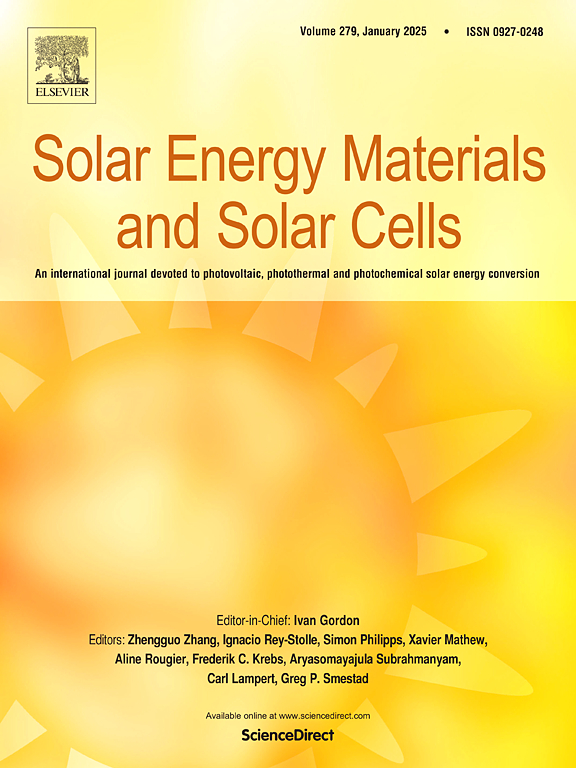Thermally driven memory flexible phase change hydrogel for solar energy efficient building thermal management
IF 6.3
2区 材料科学
Q2 ENERGY & FUELS
引用次数: 0
Abstract
Sodium sulfate decahydrate (SSD), as a typical inorganic phase change material (PCM), can be used to improve solar energy utilization efficiency and thermal management. However, its inherent problems of leakage, phase separation and strong rigidity severely limit its practical application. In this work, a phase change hydrogel with shape remembering behavior and high photothermal conversion capability was designed using konjac glucan and acrylamide copolymer as supporting material, SSD as PCM, and hydrothermal carbon (HTC) as photothermal converter and thermal conductive filler. In view of the hydrogel hydrophilic cross-linked 3D network, good compatibility with SSD, can effectively solve the problem of SSD high temperature leakage, SSD packaging efficiency up to 90.4 wt%. At the same time, HTC forms a continuous and effective photothermal conversion and thermal conductivity path with the help of the 3D network of hydrogel, and the phase change hydrogel shows excellent photothermal conversion performance and thermal conductivity (0.89–1.11 W m−1 K−1). In addition, the phase change hydrogels exhibited excellent thermally driven shape memory behavior (385 s) and mechanical strength up to 0.67 MPa. This provides a new feasible way to construct green buildings instead of air conditioning for winter insulation.
用于太阳能高效建筑热管理的热驱动记忆柔性相变水凝胶
十水硫酸钠(SSD)作为一种典型的无机相变材料(PCM),可用于提高太阳能利用效率和热管理。然而,其固有的泄漏、相分离和刚性强等问题严重限制了它的实际应用。本研究以魔芋葡聚糖和丙烯酰胺共聚物为支撑材料,SSD 为 PCM,水热碳(HTC)为光热转换器和导热填料,设计了一种具有形状记忆行为和高光热转换能力的相变水凝胶。鉴于水凝胶亲水性交联三维网络,与 SSD 的相容性好,可有效解决 SSD 高温泄漏问题,SSD 封装效率高达 90.4 wt%。同时,HTC 借助水凝胶的三维网络形成了连续有效的光热转换和导热路径,相变水凝胶表现出优异的光热转换性能和导热性能(0.89-1.11 W m-1 K-1)。此外,相变水凝胶还表现出优异的热驱动形状记忆行为(385 秒)和高达 0.67 兆帕的机械强度。这为建造绿色建筑提供了一种新的可行方法,可代替空调进行冬季保温。
本文章由计算机程序翻译,如有差异,请以英文原文为准。
求助全文
约1分钟内获得全文
求助全文
来源期刊

Solar Energy Materials and Solar Cells
工程技术-材料科学:综合
CiteScore
12.60
自引率
11.60%
发文量
513
审稿时长
47 days
期刊介绍:
Solar Energy Materials & Solar Cells is intended as a vehicle for the dissemination of research results on materials science and technology related to photovoltaic, photothermal and photoelectrochemical solar energy conversion. Materials science is taken in the broadest possible sense and encompasses physics, chemistry, optics, materials fabrication and analysis for all types of materials.
 求助内容:
求助内容: 应助结果提醒方式:
应助结果提醒方式:


